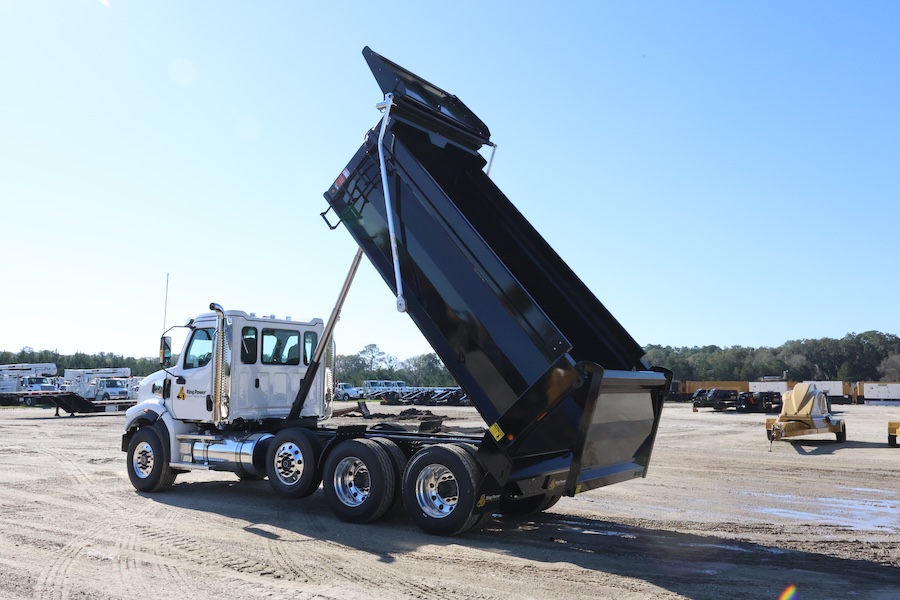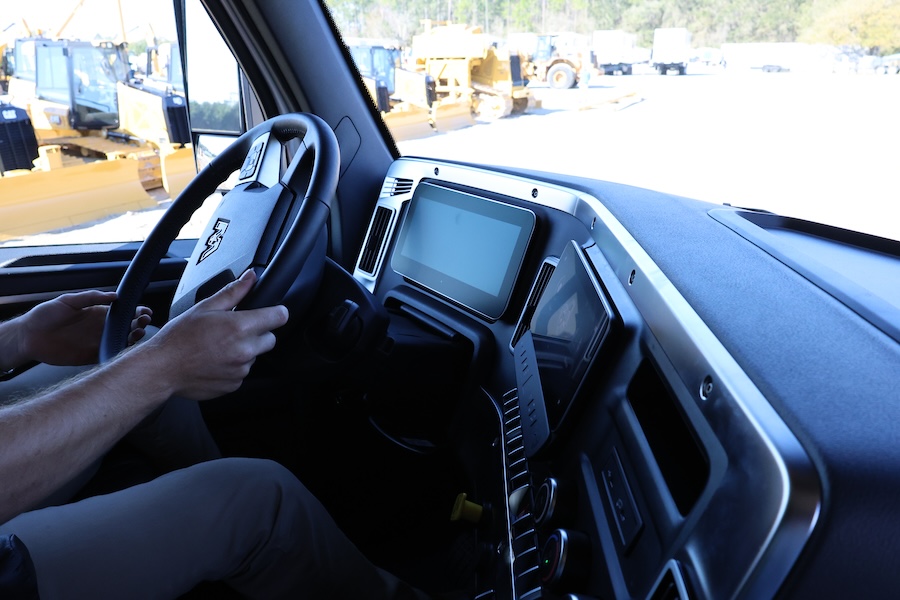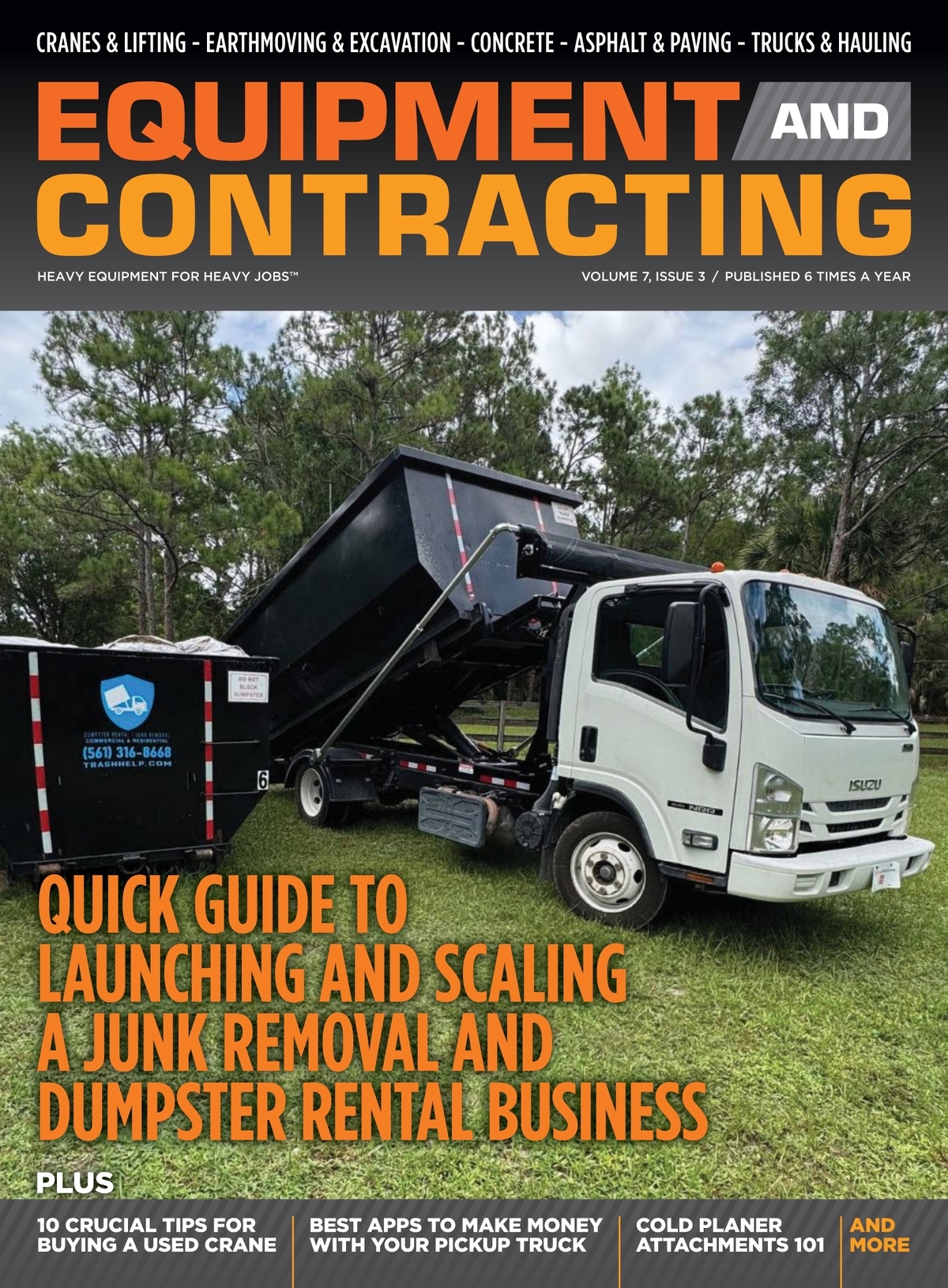
View the complete article here.
Dump trucks are indispensable assets across a wide range of industries, serving as the backbone of material transportation and site management. Their versatility and efficiency make them essential for tasks in construction, mining, road maintenance, landscaping, and municipal services. These vehicles facilitate the movement of heavy materials, ensure project timelines are met, and contribute significantly to maintaining organized and safe work environments.
The Role of Dump Trucks in Modern Industries
The most common roles for dump trucks include…
Construction
In the construction industry—dump trucks are crucial for transporting materials such as sand, gravel, dirt, and concrete. They facilitate the movement of these heavy materials to and from construction sites, ensuring that projects run smoothly and on schedule. Dump trucks also play a vital role in clearing construction debris, helping to maintain a safe and organized work environment.
Mining
Mining operations rely heavily on dump trucks for the transportation of raw materials from extraction sites to processing facilities. These trucks are designed to handle the rigorous demands of hauling large volumes of ore, coal, and other mined materials. Their robust construction and high payload capacity make them ideal for navigating the challenging terrains of mining sites.
Road Maintenance
Road maintenance and repair projects benefit significantly from the use of dump trucks. These vehicles are employed to deliver asphalt, aggregate, and other materials needed for road construction and resurfacing. Additionally, dump trucks are used to remove old pavement and debris—streamlining the maintenance process and reducing downtime.
Landscaping
In the landscaping industry—dump trucks are essential for the efficient transportation of soil, mulch, rocks, and other landscaping materials. Their ability to quickly and effectively move large quantities of material helps landscapers complete projects more efficiently. Whether it’s for residential landscaping or large-scale commercial projects, dump trucks are a key component in delivering materials to job sites.
Municipal Services
Municipal services utilize dump trucks for a variety of tasks—including waste management, snow removal, and infrastructure maintenance. These trucks are equipped to handle the collection and transport of waste materials, ensuring that communities remain clean and sanitary. During winter months, dump trucks are often outfitted with plows and spreaders to manage snow and ice on roads—keeping them safe for travel.

Features that Enhance Efficiency in Dump Trucks
Efficiency in dump trucks is a critical factor that impacts productivity and operational costs across various industries.
Advanced Engine Technology
One of the most significant advancements in dump truck efficiency is the development of advanced engine technology. Modern dump trucks are equipped with engines that offer higher fuel efficiency, reduced emissions, and greater power output. These engines are designed to provide the necessary torque for heavy-duty operations while minimizing fuel consumption. Innovations such as turbocharging, advanced fuel injection systems, and optimized combustion processes contribute to the improved performance of dump truck engines.
Robust Construction
The construction of dump trucks plays a crucial role in their efficiency and durability. Modern dump trucks are built using high-strength materials that offer superior resistance to wear-and-tear. This robust construction ensures that the trucks can withstand the harsh conditions of construction sites, mining operations, and other demanding environments. Additionally, advancements in materials and manufacturing processes have led to lighter yet stronger dump truck bodies—which contribute to better fuel efficiency and load capacity.
Innovative Design
Innovative design features are another key aspect that enhances the efficiency of dump trucks. Aerodynamic designs reduce air resistance, leading to improved fuel economy. Ergonomic cabin designs provide better comfort and visibility for operators, reducing fatigue and increasing productivity. Additionally—the integration of automated systems, such as automatic transmissions and hydraulic controls, simplifies the operation of dump trucks and enhances their overall efficiency.
Technological Integration
The integration of technology in dump trucks has revolutionized their efficiency and operational capabilities. Modern dump trucks are equipped with GPS tracking and telematics systems that provide real-time data on vehicle location, performance, and maintenance needs. These systems enable fleet managers to optimize routes, monitor fuel usage, and schedule preventive maintenance—thereby reducing downtime and operational costs. Moreover—advanced safety features, such as collision avoidance systems and adaptive cruise control, enhance the safety and efficiency of dump truck operations.
Example: Ring Power Western Star 49X
An excellent example of a modern dump truck that embodies these features is the Ring Power Western Star 49X. This truck is equipped with a powerful and efficient engine that meets stringent emission standards while delivering exceptional performance. Its robust construction ensures durability in the toughest conditions—and its innovative design features, such as an ergonomic cabin and advanced safety systems, make it a highly efficient and reliable choice for various industries. The integration of GPS tracking and telematics in the Western Star 49X further enhances its operational efficiency, making it a prime example of how modern technology can transform dump truck performance.
Case Studies Showcasing the Versatility of Dump Trucks
The versatility of dump trucks is best understood through real-world case studies that highlight their diverse applications. These examples demonstrate how dump trucks are effectively used in different scenarios, showcasing their critical role in various industries.
In a highway expansion project in Texas, dump trucks were crucial for transporting thousands of tons of aggregate and asphalt. The project aimed to accommodate increased traffic and improve road safety by widening several miles of the interstate and constructing new exit ramps. A fleet of dump trucks operated around the clock, ensuring a continuous supply of materials. The high-capacity trucks minimized the number of trips needed, reducing overall transportation costs and emissions—which was crucial in keeping the project on schedule.
In Arizona, a copper mine utilized heavy-duty dump trucks for transporting extracted ore from the mining site to processing facilities. The mine required the movement of large volumes of material over rugged terrain, and the dump trucks’ robust construction and high payload capacity were essential for this task. These trucks were chosen for their durability and ability to handle the challenging conditions of the mine. Advanced features like GPS tracking and telematics optimized routes and monitored vehicle performance, significantly boosting the mine’s productivity.
In Chicago, a comprehensive road resurfacing program relied heavily on dump trucks to improve the quality and safety of city streets. These trucks delivered new asphalt and removed old pavement, navigating narrow urban streets to deliver materials directly to resurfacing crews. This project highlighted the importance of dump trucks in urban infrastructure maintenance, where timely and efficient material delivery is critical to minimizing traffic disruptions and completing work on schedule.
A large-scale landscaping project in Central Park, New York City, demonstrated the adaptability of dump trucks in handling various types of loads. The renovation involved creating new gardens and recreational areas—requiring the transport of soil, mulch, rocks, and other materials. The efficient use of dump trucks ensured prompt delivery of materials, allowing landscapers to maintain their schedule and complete the project on time.
During severe winter storms in Boston, municipal dump trucks were equipped with snowplows and salt spreaders to clear snow from city streets and highways. These trucks operated continuously, ensuring that main roads remained accessible for emergency services and residents. The adaptability of dump trucks in harsh weather conditions highlighted their critical role in municipal services, where they contributed to public safety and mobility.

Maximizing the Efficiency of Dump Trucks
Improving the efficiency of dump trucks can lead to significant cost savings and increased productivity. Here are some strategies that dump truck owners and operators can implement to ensure they get the most out of their vehicles…
Regular Maintenance
Regular maintenance is crucial for keeping dump trucks in optimal working condition. This includes routine checks on the engine, brakes, hydraulics, and tires. Scheduled maintenance helps prevent unexpected breakdowns and prolongs the lifespan of the truck. Utilizing a preventive maintenance schedule can help identify potential issues before they become major problems, ensuring continuous operation and reducing downtime.
Efficient Load Management
Properly managing the load can significantly impact the efficiency of dump trucks. Avoid overloading the truck, as this can lead to excessive wear-and-tear and increase fuel consumption. Use load distribution techniques to balance the weight evenly across the truck, which helps maintain stability and reduce strain on the vehicle. Additionally, understanding the truck’s payload capacity and adhering to it can prevent mechanical failures and enhance overall performance.
Fuel Efficiency Practices
Fuel is one of the major operating costs for dump trucks. Implementing fuel-efficient driving practices can help reduce fuel consumption. Encourage drivers to adopt smooth acceleration and deceleration, maintain steady speeds, and minimize idling time. Using cruise control on highways and avoiding aggressive driving behaviors can also contribute to better fuel economy. Regularly checking and maintaining optimal tire pressure can further improve fuel efficiency.
Technological Integration
Integrating advanced technologies can significantly enhance the efficiency of dump truck operations. GPS tracking and telematics systems provide real-time data on vehicle location, performance, and fuel usage. These systems enable fleet managers to optimize routes, monitor driving behavior, and plan maintenance schedules more effectively. Investing in modern technologies like automated transmissions and collision avoidance systems can also improve operational efficiency and safety.
Training and Education
Providing ongoing training and education for operators is essential for maximizing the efficiency of dump trucks. Well-trained operators are more likely to follow best practices for driving and maintenance, leading to improved performance and reduced operational costs. Regular training sessions on fuel-efficient driving, load management, and the use of advanced technologies can empower operators to make better decisions and enhance the overall efficiency of the fleet.
Optimizing Routes
Route optimization is a key factor in improving the efficiency of dump trucks. Use route planning software to determine the most efficient paths—considering factors such as traffic conditions, road quality, and distance. Optimized routes can reduce travel time, minimize fuel consumption, and increase the number of trips completed in a day. Additionally, planning routes to avoid congested areas and peak traffic times can further enhance operational efficiency.
Final Thoughts
Dump trucks are essential assets in various industries, thanks to their efficiency and versatility. They are critical in construction, mining, road maintenance, landscaping, and municipal services—where their ability to handle heavy loads significantly boosts productivity.
Modern advancements in dump truck technology—such as advanced engines, robust construction, and innovative designs—have further enhanced their performance. Selecting the right dump truck is crucial for optimizing operational efficiency and meeting specific industry needs. Factors like payload capacity, durability, fuel efficiency, and technological integration should be considered to ensure the best fit for operational requirements.
View the complete article here.
What industries benefit most from using dump trucks?
Dump trucks are crucial in construction, mining, road maintenance, landscaping, and municipal services for transporting materials efficiently.
How can dump truck operators improve fuel efficiency?
Operators can improve fuel efficiency by adopting smooth driving practices, maintaining optimal tire pressure, and utilizing technologies like GPS tracking for route optimization.














































